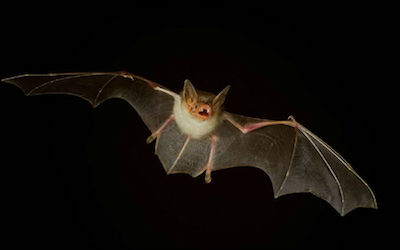PTE考生目前最大的问题之一就是练习题缺乏。除了有限的基本官方书(PLUS,Testbuilder, OG)之外就没有题了。很多英语基础不是很扎实的同学很难找到练习材料。悉尼文波雅思PTE培训学校专门为澳洲,尤其是悉尼、墨尔本的PTE考生准备了适合PTE听力阅读练习的科学60秒。各位PTE同学可以练习PTE听力中的summarise spoken text和PTE口语中的retell lecture,PTE听力口语-科学60秒-Frosty Moss练习记笔记技巧和复述。废话少说,下面开始:
听力内容:
60秒科学节目(SSS)是科学美国人网站的一套广播栏目,英文名称:Scientific American – 60 Second Science,节目内容以科学报道为主,节目仅一分钟的时间,主要对当今的科学技术新发展作以简明、通俗的介绍,对于科学的发展如何影响人们的生活环境、健康状况及科学技术,提供了大量简明易懂的阐释。
This is Scientific American — 60-Second Science. I’m Christopher Intagliata.
When we humans talk to other humans, the sounds we make all have very specific meanings. “When I say apple you immediately imagine something that has the characteristics of an apple.” Yossi Yovel, a neuroecologist at Tel Aviv University in Israel. “And the question is, do animals also have something like that?”
Yovel and his team chose to listen in on bats, which do a lot of vocalizing. In fact, in caves with vast numbers of bats, it’s total cacophony. [bat cave] “It sounds like a crowd in a football stadium before the match has begun, or something like that.” To simplify the problem, the researchers eavesdropped on a much smaller colony—just 22 Egyptian fruit bats.
Over several months, they recorded tens of thousands of calls, [call] along with synced-up video—which allowed them to decipher the speaker, the intended recipient, the situation, and the behavior resulting from each call. They then fed their huge database of calls to computers, to test whether machine learning could help make sense of them, using algorithms like the ones used for human speech recognition.
Turns out, the algorithms could correctly identify which bat made each call, more often than chance would predict. “And I can say to some extent who is this bat shouting at, so who is the addressee of this vocalization?” They could even figure out what a bat might be angry about, like “hey, stop sniffing me, or this is my food” and how the addressee might respond—meaning there’s really quite a lot of information embedded in bat vocalizations. Pretty useful, if you live in the dark. The study is in the journal Scientific Reports.
As for whether we might someday have Google Translate for bat calls? “Well, Google, definitely not… but perhaps an iPhone.” But seriously, “For sure in the next 100 years we will always be behind, we will never really be able to generate a bat to human dictionary. But definitely we will advance in that direction.” And in doing so—it might shed a little light on animal communication in general. And how our own language evolved.
Thanks for listening for Scientific American — 60-Second Science Science. I’m Christopher Intagliata.
墨尔本悉尼文波PTE原创首发
更多精彩请持续关注微信wenbo_tv3。





